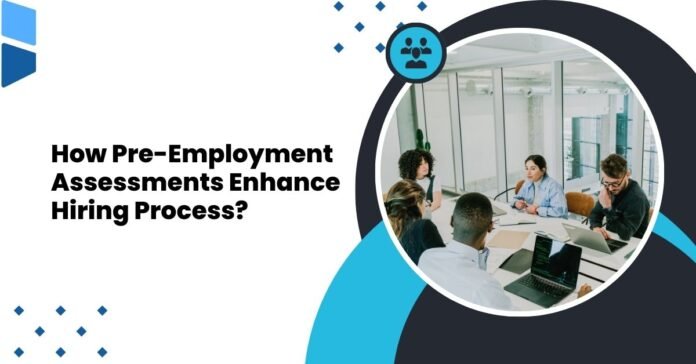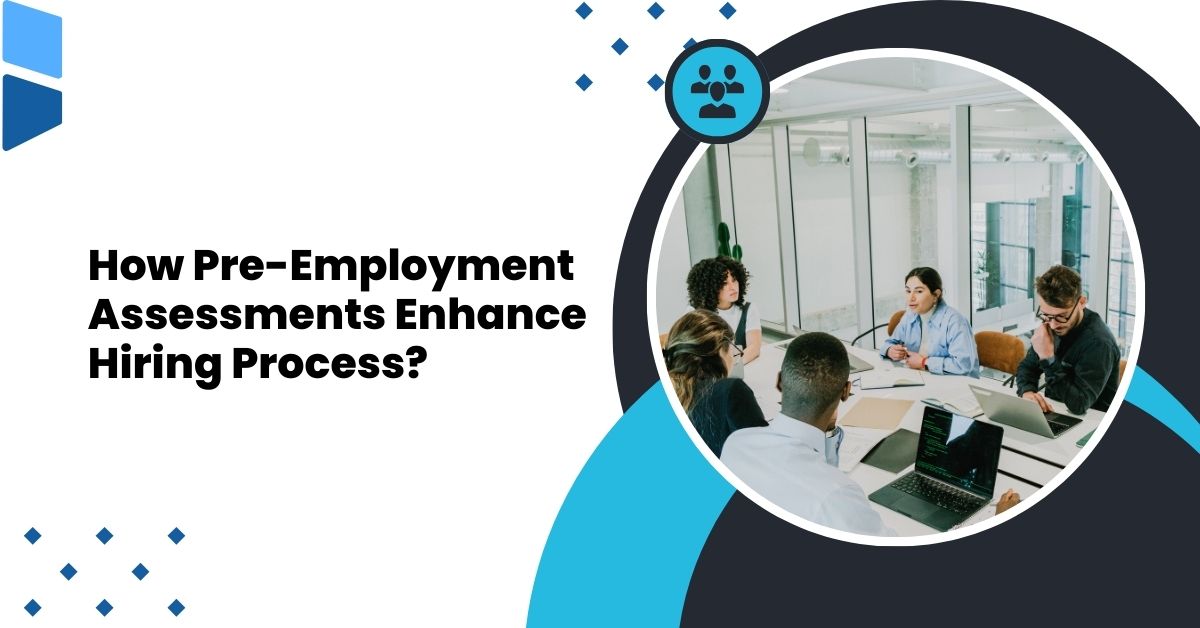In today’s competitive job market, finding the right talent is crucial for organizational success. Pre-employment assessments have emerged as invaluable tools in streamlining the hiring process while ensuring the selection of top-tier candidates. Understanding their significance and incorporating them effectively can significantly enhance the hiring process for organizations across industries.
What is a Pre-employment Assessment Test?
Pre-employment assessments encompass a variety of tools and methodologies aimed at evaluating candidates’ cognitive abilities, personality traits, and job-related skills. These assessments serve to provide valuable insights into candidates’ suitability for specific roles and their potential fit within an organization. From cognitive tests to job simulations, the range of assessment methods enables recruiters to make informed decisions regarding candidate selection.
Types of Pre-employment Assessment Tests
Cognitive Abilities Assessments:
Cognitive abilities assessments evaluate candidates’ problem-solving, critical thinking, and decision-making skills. These assessments often include numerical reasoning, verbal reasoning, and abstract reasoning tests. By assessing cognitive abilities, organizations can gauge candidates’ potential to learn, adapt, and excel in various job roles, especially those that require analytical thinking and complex problem-solving.
Personality Assessments:
Personality assessments delve into candidates’ behavioral traits, preferences, and tendencies. These assessments provide insights into how candidates may interact with others, handle stress, communicate, and collaborate within a team. By understanding candidates’ personalities, organizations can assess their potential fit with the company culture, team dynamics, and specific job requirements. Personality assessments help identify candidates who possess the traits and characteristics conducive to success in the role and align with the organization’s values and objectives.
Job-Specific Assessments:
Job-specific assessments evaluate candidates’ proficiency in the skills and competencies essential for the role they are applying for. These assessments are tailored to the specific job requirements and may include technical skills assessments, situational judgment tests, or job simulations. Job-specific assessments provide organizations with a clear understanding of candidates’ capabilities, expertise, and readiness to perform the duties and responsibilities of the role effectively. By assessing candidates’ job-specific skills, organizations can identify the most qualified candidates who possess the requisite knowledge and expertise to excel in the role.
Integrity and Background Checks:
Integrity and background checks verify candidates’ honesty, integrity, and suitability for employment. These checks typically include criminal background checks, employment verification, education verification, and reference checks. Integrity and background checks help organizations ensure that candidates have provided accurate information on their resumes and have a clean record free from any red flags or discrepancies. By conducting thorough integrity and background checks, organizations can mitigate risks associated with hiring individuals who may pose integrity or credibility concerns.
Benefits of Using Pre-employment Assessments
Enhanced Hiring Decisions:
Pre-employment assessments provide valuable insights into candidates’ skills, personalities, and work styles, aiding employers in making more informed hiring decisions. By assessing candidates’ suitability for specific roles, employers can reduce the risk of hiring mismatches and improve overall employee retention rates.
Objective Evaluation:
These assessments offer an objective means of evaluating candidates’ abilities and aptitudes, minimizing biases that may arise during the hiring process. Objective criteria help ensure fairness and equal opportunities for all applicants, promoting diversity and inclusion within the workforce.
Enhanced Team Performance:
Enhanced team performance relies on collaboration, clear communication, and shared goals. Valuing each member’s skills fosters productivity and innovation. Open dialogue, feedback, and a culture of learning bolster team dynamics. Motivated and supported individuals collaborate effectively toward common objectives, driving overall success.
Performance Prediction:
Pre-employment assessments can predict candidates’ future job performance based on their responses and scores. Assessments tailored to specific job roles help employers identify individuals with the requisite skills and traits needed for success in the position. This predictive ability allows organizations to build high-performing teams and achieve greater efficiency in achieving business objectives.
In conclusion, PXT assessments (pre-employment assessments) serve as pivotal tools in modern hiring practices, offering comprehensive insights into candidates’ cognitive abilities, personalities, and job-specific skills. By leveraging various assessment methods, organizations can make informed hiring decisions, enhance team performance, and predict future job success. With their ability to mitigate biases and streamline the hiring process, PXT assessments emerge as indispensable assets for organizations striving to secure top talent and foster a thriving workforce.


